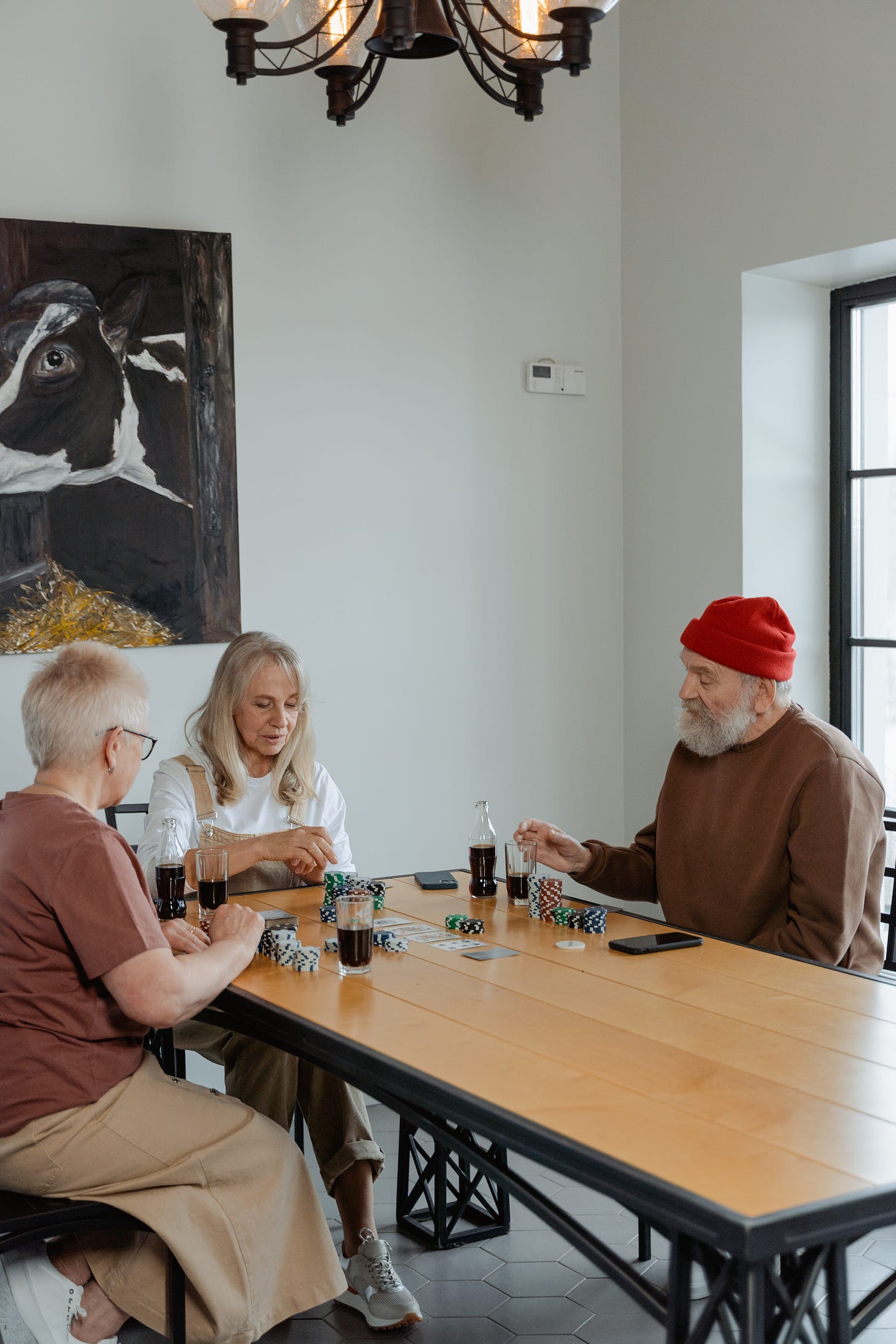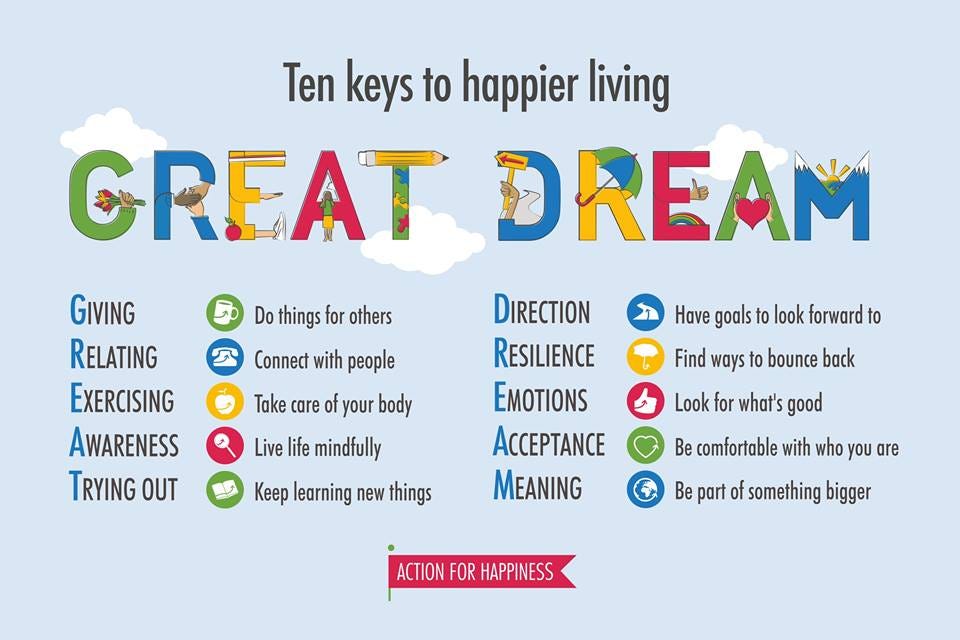
Introduction
Growing older can be sitting and waiting to die, or it can be recognising the increase in limitations, but still trying to make something of each day. There may come a time when I want to just sit down and wait, but for now, I am determined to get something out of each day. That is not to disrespect the choices of others, or those who feel they don’t have a choice, who largely feel that enough is enough, and it is time to just sit down and rest from the lives they have led.
Health and Wealth
Many people have been able to save and invest enough money throughout their lives, and have a big circle of friends, so they can live a comfortable retirement travelling, or with lots of social activities when they get older. And we should all be happy for those people who are able to do that.
For the rest of us, who may not have those resources or that big circle of friends, life may involve more challenges, less opportunity and health problems that will only be resolved after a long period of being on an NHS waiting list, with no prospect of speeding things up with private treatment. Under those circumstances, it may be easier for people to give-up.
Lonely Versus Alone
Some say that old age is like a second childhood, but sometimes it can feel like lonely solitary imprisonment, especially for those who lose a partner, after living together for decades. The temptation, then, can be to give-up, and live a sad and miserable life, and it can stay like that until they die, which could be decades later.
As I get closer to retirement, I am aware of all these possibilities, but I am determined to fill my life with learning opportunities. I do live alone (by choice), and I happily spend most of my time on my own. I am also limited by many health problems, fatigue and mobility issues. Thus, I might be mistaken for someone who never does anything, and is likely to be very lonely. None of which is true. Yes, I probably watch too much television, and sometimes that is because of not being able to do much more than that, but on other days, I maintain my household chores, go shopping, deal with the never-ending laundry basket, do my own cooking and also make time for reading, writing, learning and a bit of walking. I do have a good friend who takes me shopping every week, as I don’t have a car. At the moment, I still have two days of employment to contend-with, as well as everything else. And, in addition, I will always drop everything for any opportunity to be with, or communicate with, my family.
Active and Social Or Withdrawn
Other people I know lead active social lives, taking every effort to meet-up with others, doing multiple activities, or attending entertainment events together, because that is what works well for them. There are, however, many people who shut themselves away, rarely communicating with anyone else, having very few visitors and having oven-ready meals delivered. Sometimes, this is through choice, but at other times, it is a result of drifting into that kind of existence, whilst shrugging shoulders. I know this to be true as I see it happening all around me, living in housing for older people, with a housing association landlord. I respect the privacy and choices of all my fellow residents, but I do make a point of exchanging a few words as we might pass each other to the bins and recycling area, for example.
Mental Health In Older People
Thus, maintaining good mental health can also be challenging for older people, and that was particularly the case at the height of the pandemic, particularly for those of us who were shielding. And even despite a full vaccination programme, there are mental health problems in existence within the elderly population, following the withdrawal of restrictions, and even more so, if that person had previously contracted Covid, regardless of the intensity.
Developing A Good Model of Health
Thus, it is worth looking for a model of maintaining the best physical and mental health, regardless of degree of health problems, wealth or resources available. For some people, that can be counselling, therapy, talking things through with friends, writing, arts, crafts, cooking or generally staying busy.
For myself, I use writing (Surprise, surprise!), but also use a model developed by Action for Happiness, which is envisaged by their image below…
This idea of “Great Dream”, or “Ten Keys to Happier Living”, incorporates some crucial points, the first five of which corresponds with the model of Five Steps to Mental Wellbeing as used by the UK NHS. The second five elements relate to what could be described as strategic development, rather than the first five, which are about daily practice. It is not my intention to go into the detail of either the NHS model nor the Action for Happiness model, as both those organisations explain their models in great detail on their respective websites.
Instead, I would just point-out that money and resources are mostly not required to put any of these elements in play, and so therefore should be accessible to the greater majority of people, but they do all require ongoing work to get the most benefit from the model. That, in itself, can be of enormous benefit to older people, particularly as it provides motivation, too.
Final Note: Caution
I have not been referring to research when making the claims that I have made, but more to life experience and anecdotal observations. Older people are not all the same, any more than any other group. Just because we are getting older, it does not mean that we have abandoned our individuality or our human rights in that respect. Thus, any examples and models are borne out of one person’s experience and opinion only.
None of this content constitutes any kind of professional advice, and anyone in crisis, particularly anyone experiencing thoughts of harming self or others, or experiencing feelings of despair or hopelessness, should urgently seek help from their GP, or through other existing gateways to professional mental health services.
Similarly, anyone already engaging in such services, should seek advice from the professional(s) involved before taking any actions referred-to within this document.
Keep On Playing
Death makes us afraid, it’s often said, whenever we’re left with no breath. While we think of the when, we shouldn’t ‘til then, stopping our thoughts with our death. There may come a day to no longer play, or be able to say our goodbyes, or it might be a case of just filling our days until carried away by surprise. Whatever it be, it’s for both you and me and doesn’t leave anyone out. So, don’t sit and complain, get on with the game, ‘til death is no longer in doubt.
Fraser
May 2022
You can always find my writing by following this link.



